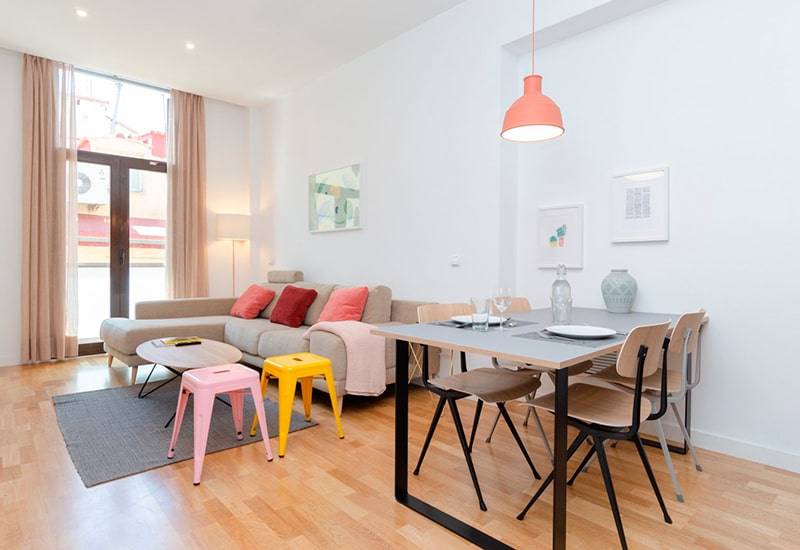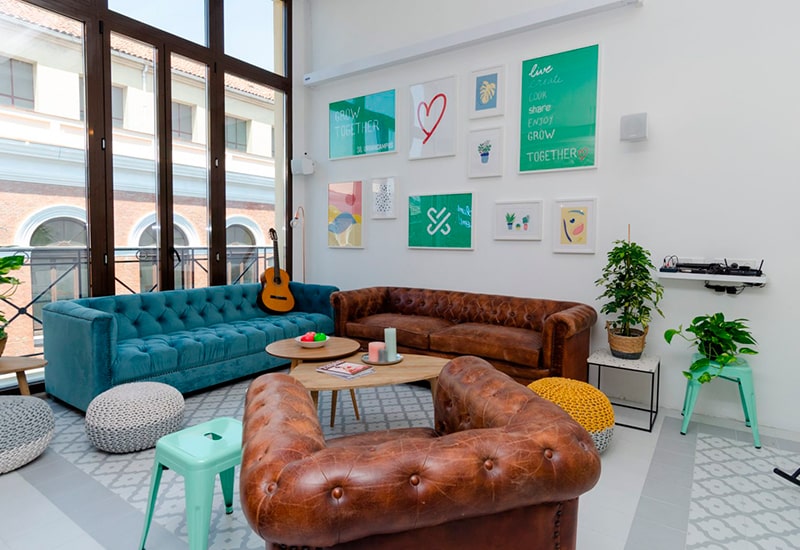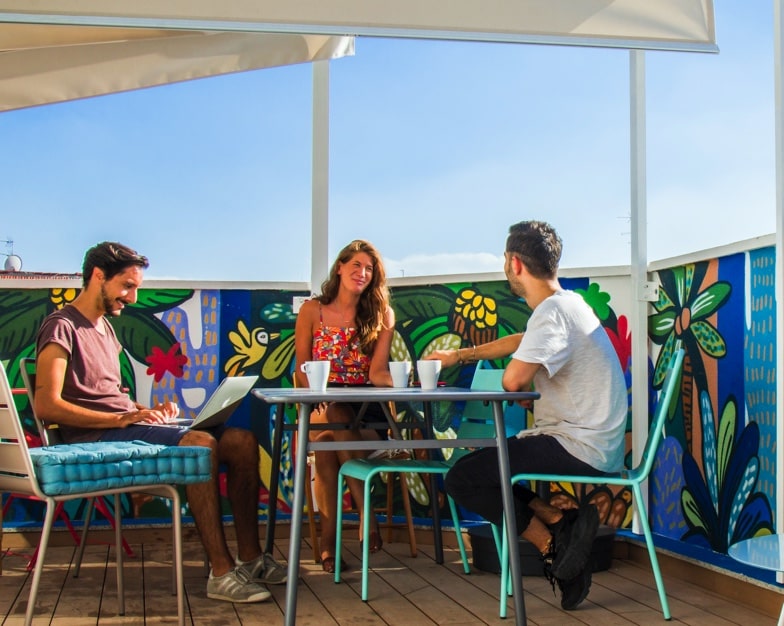Telefónica’s “Think Big” blog, interviewed Urban Campus to dive deeper into the rising phenomenon that is co-living and what we do here.
In the article ¨Coliving, or how to live and network without leaving your home ¨ Mar, from Telefónica, talks about us, the unique benefits we offer to our residents, and why they choose to live at our campuses.

MALASAÑA MADRID COLIVING – APARTMENT
Interested about coliving and Urban Campus? You can find the full article here in Spanish or keep reading below in English.
“Coliving” or how to live, work and network without leaving your home
There are many definitions that try to explain coliving, a trend that has came to Europe directly from Silicon Valley and that is becoming a social and business phenomenon. Live, work, enjoy and network, all in one place. That is the philosophy of coliving and it has come to stay, responding to our ever evolving society. Spaces to live and work! Today’s generation wants to share, there’s no doubt about that! And to respond to that demand, the real estate market has come up with an answer: coliving. According to the data collected in the “II Observatory of Housing in Spain”, done by Century 21, 0.3% of people aged between 18 and 34 years old live in this type of accommodation in Spain. Whilst it is still a small figure, all signs indicate that it won’t stop growing in the incoming years, with companies realising the need in cities such as Madrid, Barcelona, Valencia or Malaga.
Urban Campus
One of them is Urban Campus, a company that made its appearance in the real estate market in 2016 and has opened five buildings in Madrid, which have impacted more than 600 peoples’ lives already! Their vision and goal? “Respond to social changes by developing and operating campuses (buildings) centred on people”.
“Our mission is to change the way people live and interact in cities,” explains Marta Torres, Marketing Manager at Urban Campus, who reiterates how coliving is the answer to a real estate and societal scene that is outdated for today’s generation.

MALASAÑA MADRID COLIVING
How coliving was born
Coliving originated in Silicon Valley where many young professionals, who wanted to make connections that would help them in their personal and professional growth, struggled to find affordable housing. In Spain, especially in large cities such as Madrid and Barcelona, this is also happening, and it is increasingly difficult to meet this current housing demand. “We live in buildings designed 60 or 70 years ago, and the real estate offer does not reflect the current way of living,” says Marta Torres. “It is very difficult for young people to become independent or to find the type of housing that really meets their needs at a price that they can afford, whilst having a little flexibility in their lease contracts ,” she continues.
Exorbitant prices, enormous buildings with wasted spaces and lease contracts that are too strict are encouraging coliving. But these are not the only reasons. Offers of rooms, studios or apartments with all bills included (electricity, water, WiFi), shared spaces to create communities, gyms, barbecues, entertainment rooms, cooking classes, yoga, concerts and more, all included for a price that starts at 700 euros per month.
The coliving formula is easy: share a building, your free time, interests and, why not, professional challenges. “The profile of people who are interested in this way of life are young professionals between 30 and 40 years old, who want privacy, but also to belong to a community of people with similar interests and ambitions, in which it is possible for them to expand their network and achieve their goals, personal or professional, ”explains Marta Torres.
Some are entrepreneurs looking for synergies when setting up their startup. Others share a passion or have just arrived in Madrid and seek to share experiences with other people, without giving up comfort and flexibility, both of which we offer. “We do not ask for pay slips or guarantors and allow a minimum stay of one month that, of course, can be extended,” she adds. This alternative attracts more and more young entrepreneurs who see how, in addition to a place to live which is flexible and their own work space, they have a community where they can find other professionals or entrepreneurs, with whom to share ideas and make partnerships.

COLIVING MALASAÑA
Geographical mobility
“Many of our residents have helped or participated in each other’s projects. Some have even found a job thanks to being a part of our community. ” “All our members have access to our five buildings in Madrid, being able to attend all networking events with people living and working in our buildings.”
This option goes beyond an economic point of view (not having to pay rent for your home, plus that of an office). Coliving is a formula that responds to several needs such as geographical mobility without ties, networking, community, common interests, professional and work opportunities and leisure, “all in one solution”.
“In the last 3 years we have opened five spaces in Spain (2 coworkings, 2 colivings and a foodlab, a space for gastronomic entrepreneurs) and we have more than 30 projects in the pipeline, for the next five years in Europe,” said the head of Marketing at Urban Campus.